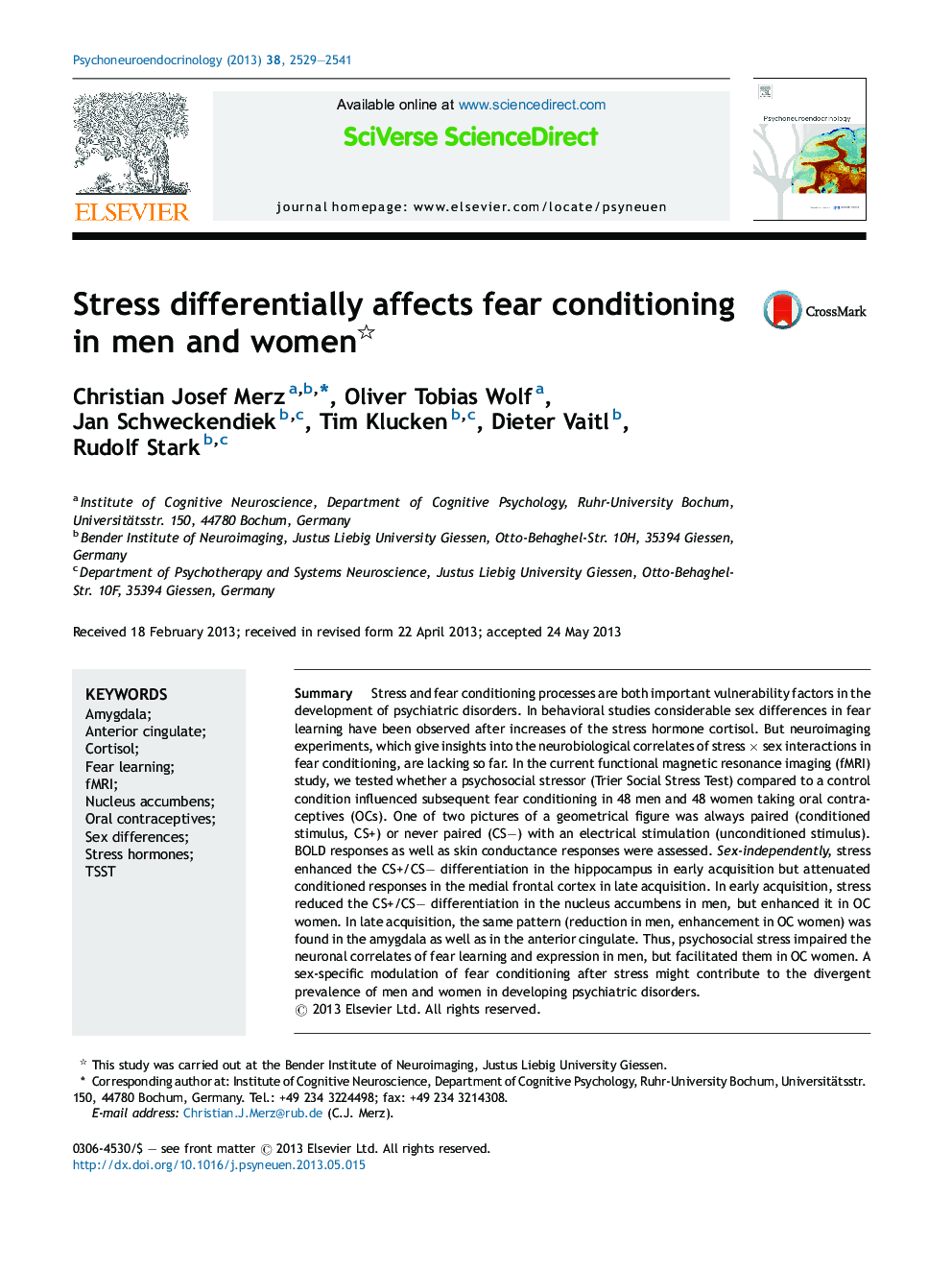| Article ID | Journal | Published Year | Pages | File Type |
|---|---|---|---|---|
| 10305780 | Psychoneuroendocrinology | 2013 | 13 Pages |
Abstract
Stress and fear conditioning processes are both important vulnerability factors in the development of psychiatric disorders. In behavioral studies considerable sex differences in fear learning have been observed after increases of the stress hormone cortisol. But neuroimaging experiments, which give insights into the neurobiological correlates of stress Ã sex interactions in fear conditioning, are lacking so far. In the current functional magnetic resonance imaging (fMRI) study, we tested whether a psychosocial stressor (Trier Social Stress Test) compared to a control condition influenced subsequent fear conditioning in 48 men and 48 women taking oral contraceptives (OCs). One of two pictures of a geometrical figure was always paired (conditioned stimulus, CS+) or never paired (CSâ) with an electrical stimulation (unconditioned stimulus). BOLD responses as well as skin conductance responses were assessed. Sex-independently, stress enhanced the CS+/CSâ differentiation in the hippocampus in early acquisition but attenuated conditioned responses in the medial frontal cortex in late acquisition. In early acquisition, stress reduced the CS+/CSâ differentiation in the nucleus accumbens in men, but enhanced it in OC women. In late acquisition, the same pattern (reduction in men, enhancement in OC women) was found in the amygdala as well as in the anterior cingulate. Thus, psychosocial stress impaired the neuronal correlates of fear learning and expression in men, but facilitated them in OC women. A sex-specific modulation of fear conditioning after stress might contribute to the divergent prevalence of men and women in developing psychiatric disorders.
Keywords
Related Topics
Life Sciences
Biochemistry, Genetics and Molecular Biology
Endocrinology
Authors
Christian Josef Merz, Oliver Tobias Wolf, Jan Schweckendiek, Tim Klucken, Dieter Vaitl, Rudolf Stark,
